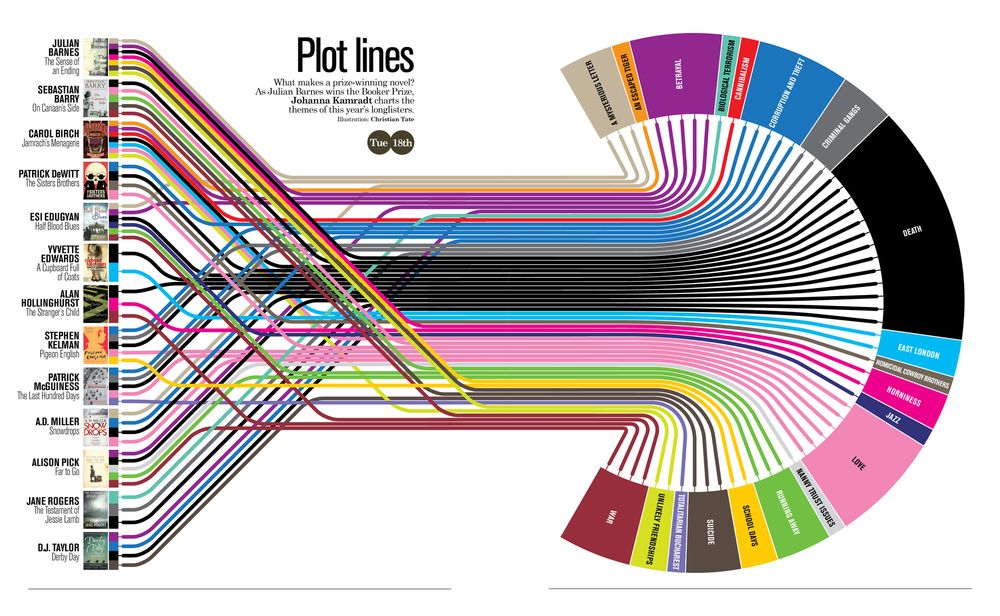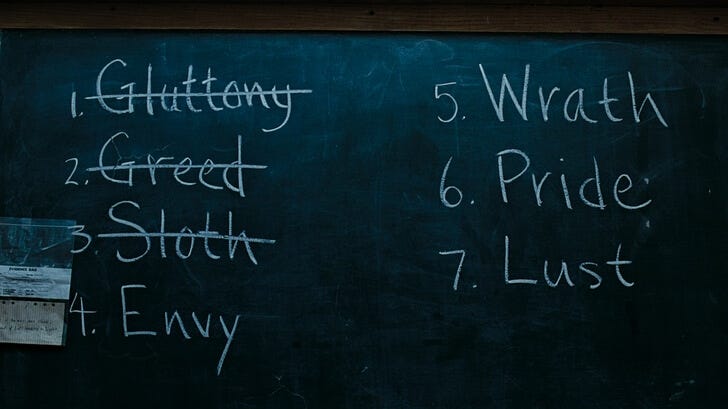Russian Roulette for Writers: The Dramatic Dice

Drama is not for the shallow, or the fainthearted. A good play or movie should be like a good meal: it leaves you fulfilled. Feelgood “drama” without any chaos is like McDonalds: it temporarily gratifies, but leaves you feeling empty. Art should set your soul on fire, not anesthetize you into a soporific numbness.

Human nature is depraved. Among our innately evil proclivities are war, murder, jealousy, lying, slavery, theft, rape, arson, adultery, prostitution, paedophilia, betrayal, greed, lust, blackmail, deceit, necrophilia, bribery, torture, fraud, mutilation, usury, child abuse, narcissism, addiction, tribal violence, slander, and of course, genocide.
Drama is a means by which we explore our own moral corruption; our sin. our dark nature: what it means to be human. Even rats don’t fuck their dead.
drama (n.)
early 16th century: via late Latin from Greek drama, from dran ‘do, act.’
The etymology of the word is derived from a deed or an act.
The word “plot” has several meanings, but in its primitive form, it is interchangeable with conspiracy:
plot, (n)
late Old English (sense 3 of the noun), of unknown origin. The sense ‘secret plan,’ dating from the late 16th century, is associated with Old French complot ‘dense crowd, secret project,’ the same term being used occasionally in English from the mid 16th century.
A plot is not a “storyline”. It is a conspiracy to commit a deed. In pure dramatic terms, the art form is not about some Average Joe saving the President; it is a group of people plotting a conspiracy to murder him (http://nfs.sparknotes.com/macbeth/).
The Many Rules of Dramatic Adrenaline
Drama, in and of itself, is the inverse of escapism. It is full-frontal confrontation with the absolute worst of ourselves. In many shows, the “addictive” elements which are salacious tend to be favoured and repeated, ad nauseam.
In authentic dramatic art, the darkness of what we witness is designed to force us to examine our own moral fragility and culpability; our capacity to act against the good for our own ends, because of how we are compelled by our selfish nature. It also acts to elevate the transcendental virtues we manifest, such as love, sacrifice, or charity.

There are some routes which are, for lack of a better phrase, “metaphysical guarantees”:
- A villain is more interesting than a hero.
- The enemy is more compelling than a friend.
- Survival is more exciting than adventure.
- Vulnerability is more powerful than safety.
- Conspiracy is more interesting than rescue.
- Betrayal is more intense than loyalty.
- Greed is more interesting than generosity.
- Loss is more profound than profit.
- Murder is more attractive than fairness or altruism.
- The unknown is more compelling than the familiar.
- Chaos is more driven than control.
- Adultery is sexier than chastity.
- Love is most interesting and romantic when it is forbidden.
- What’s hidden is more attractive than what’s available.
- Jealousy is more interesting than romance.
- Powerlessness is more profound than hope.
- Sacrifice is more powerful than salvation.
- Revenge is more interesting than justice or moving on.
- The weight of consequence is more driving than reward.
- Cruelty is more exciting than compassion.
- Inexplicability is more compelling than understanding.
- Psychopathy is sexier than sympathy.
- The abuse of power is more interesting than the exercise mercy.
- Anticipation is more emotional than eventual execution.
- Spying is more exciting than trust.
- Shock is more compelling than predictability.
- Pride is more attractive than modesty.
- Corruption is more intriguing than integrity.
- Mistakes and folly are more compelling than good decisions.
- A cliffhanger is more addictive than resolution.
- Courage and risk against impossible odds is more inspiring than safety.
- Trauma and suffering are more enticing than health and strength.
- Intrigue is more interesting than confession.
- Destruction is more exciting than founding.
- Rebellion is more powerful than conformity.
- Fear is more attractive than confidence.
- Incoherence is more stressful than intelligence.
- Dilemma is more interesting than certainty.
- Alienation is more emotional than connection
- What is stolen appears sweeter.
- Theft is more exciting than wages.
- Slander is more impactful than truth.
- The exhaustion or maintaining lies and deceit are worse than the sharpness of brutal honesty.
- Pressure is more powerful than relief.
- Humiliation is more profound than success.
- Inevitability is more devastating than causality.
- An unjustified attack is more exciting than a justified defense.
Introducing the Dramatic Dice: A Tonic For Writer’s Block
It always has to get worse. They always make the wrong choice; actually, the worst choice. It has to hurt. It has to make you scream at the screen.
Pulp novelist Raymond Chandler had a fascinating piece of advice for writers locked into a corner of their own story:
“When in doubt, have a man come through a door with a gun in his hand.”
(Chandler’s Law)

A story of 120 minutes can be composed of 12 sections. Each section is 10 minutes, or 10 pages. Each section needs a “turn” or twist, in addition to its narrative reversals (anagnorisis, peripeteia). If we divide the 12 sections in 3 acts, we get:
+-----+---+----+----+----+----+----+----+----+----+----+-----+-----+
| | 0 | 10 | 20 | 30 | 40 | 50 | 60 | 70 | 80 | 90 | 100 | 110 |
+-----+---+----+----+----+----+----+----+----+----+----+-----+-----+
| I | X | X | X | | | | | | | | | |
+-----+---+----+----+----+----+----+----+----+----+----+-----+-----+
| II | | | | X | X | X | X | X | X | | | |
+-----+---+----+----+----+----+----+----+----+----+----+-----+-----+
| III | | | | | | | | | | X | X | X |
+-----+---+----+----+----+----+----+----+----+----+----+-----+-----+How do you know what to do next? How can you write a story from scratch? If you know you need 12 story “milestones”, you can insert them, and flesh out the transitions between each.
Roll the Dramatic Dice. Well, you could call it the Dramatic Dartboard, if you wanted.
+-------------------------------+----------------------------------+
| Kill 1 or 1000 | Caught up in a scandal |
| I know you did it | If i survive, you die |
| Pushed to the unthinkable | It was the plan all along |
| Facing death together | Interfere and i kill others |
| Framed | Hunted |
| Power too strong | Release a dangerous prisoner |
| Forced suicide | Human shields |
| Outrage/provocation | Group outside smashing in |
| Bravery in death | Nuclear/chemical catastrophe |
| The mole is revealed | Cowardice |
| Hostage crisis/rescue | Backlash |
| Who do you save? | Disclose or silence |
| Catastrophic abandonment | Assassination attempt |
| Daring escape so narrowly | Forced to kill a loved one |
| Love triangle | Serial killing |
| Evil to accomplish good | Vicious disagreement |
| Extreme jealousy | Russian roulette |
| Rejection/expulsion | Blackmail |
| Amazing before we die | Torture |
| Discover a horrific secret | Evil is smarter |
| Unbelievable heroism | Kill character |
| Murder morally | External investigation |
| Impostor | Death/suffering of a loved one |
| Countdown | Senseless death of a naive youth |
| Trap | Leverage |
| Self-sacrifice | Paedophilic seduction |
| Mystery boyfriend | Character goes rogue |
| You've been conned | Explosive escape |
| Building/cliff edge | Massacre |
| Violate morality to live | Poisoned by someone close |
| Weather kills | Shot down/sinking |
| Amnesia | Desperate debt repayment |
| Violent rage | Armageddon/Apocalypse |
| Unknown monster | No cure & immediately contagious |
| Randomly backfires | Inappropriate advance |
| Fight to the death | Under remote control |
| Suicide | Science goes wrong |
| Lawsuit deposition | Rape |
| Impossible love discovered | Bomb blast |
| Fake death | Pinned down/overrun |
| Out of time/the last moment | Mistaken identity |
| Outnumbered | An impossible test |
| Do something terrible or i do | Betrayal revealed |
| Engines fail | Unnecessary cruelty |
| Harsh imprisonment | Going mad through gas lighting |
| Last stand | Death vs suffering to survive |
| Sudden attack | Confessions in therapy |
| Immoral execution | Government crackdown |
| Blinded by grief | Euthanasia / death as mercy |
| Transformation into evil | Magician's reveal |
| Disruption anger | Sabotaged |
| Tables turned | Press/PR expose |
| One final chance | Hostile takeover |
+-------------------------------+----------------------------------+So, if we printed 6 of these on 2 dice, we could randomly select the story’s turns, or invoke an entirely series of randomised twists to take us deeper and darker into human nature.
For example:
Act I:
+------+------------+--------------------+
| 0 | 10 | 20 |
+------+------------+--------------------+
| Trap | Last Stand | Lawsuit deposition |
+------+------------+--------------------+Act II:
+--------+--------+-------------+---------+-----------+-----------+
| 30 | 40 | 50 | 60 | 70 | 80 |
+--------+--------+-------------+---------+-----------+-----------+
| Framed | Murder | Tbls turned | Amnesia | Sabotaged | Countdown |
+--------+--------+-------------+---------+-----------+-----------+Act III:
+---------------+------------------+-------------------+
| 90 | 100 | 110 |
+---------------+------------------+-------------------+
| Mole revealed | Russian roulette | Magician's reveal |
+---------------+------------------+-------------------+That’s a hell of a story. Nobody has any idea of what it’s about, but it’s going to be a ride.
Our protagonist is led into a trap where he/she has to make a last stand, but it results in their legal deposition.
They find themselves framed after a close colleague is murdered, before the tables are turned on everyone. A bout of amnesia leads to the sabotage of their plan, generating a tragic countdown.
As we race to the conclusion, a mole working against everyone is discovered, prompting a horrific climax of metaphysical Russian Roulette — before the grand secret behind it all is unveiled by the mastermind.
Don’t think of a cop. It’s cliched. It’d be better as someone innocuous, like an ambassador’s assistant, or a trial lawyer.
There are 106 scenarios in the dice set (nearly 2x a set of cards). Using the basic combination formula:
C(n,r) = n!/(r! * (n-r)!)
Where C is the number of combinations (target), n is the number of items in the set (106, total objects), and r is the number you choose (12, or sample size), that means there are a total of 2,200,787,712,814,602 combinations (1,054,180,835,698,534,600,000,000 permutations), or stories, that could be derived from such a small dataset alone.
The Edge of the Moral Precipice: Our Natural Home
None of these die edges are things that happen; there’s no risk, cost, consequence, or reckoning involved in being an observer of events. The audience must be compelled to act as judge, or be forced to face their own humanity in the same situation.
The turns of these dice are moral choices, and not merely ordinary predicaments. Any fool can write a dilemma. Any fool can write a canon of history. In forcing the audience to decide, not just reflect, we go right to the heart of what drama is: the mirror to own nature.
God does not play dice, say the great academic minds. Dramatists absolutely do, and rightly so. If you meet one, they’ll force you to ask: which bullet is in the chamber?
